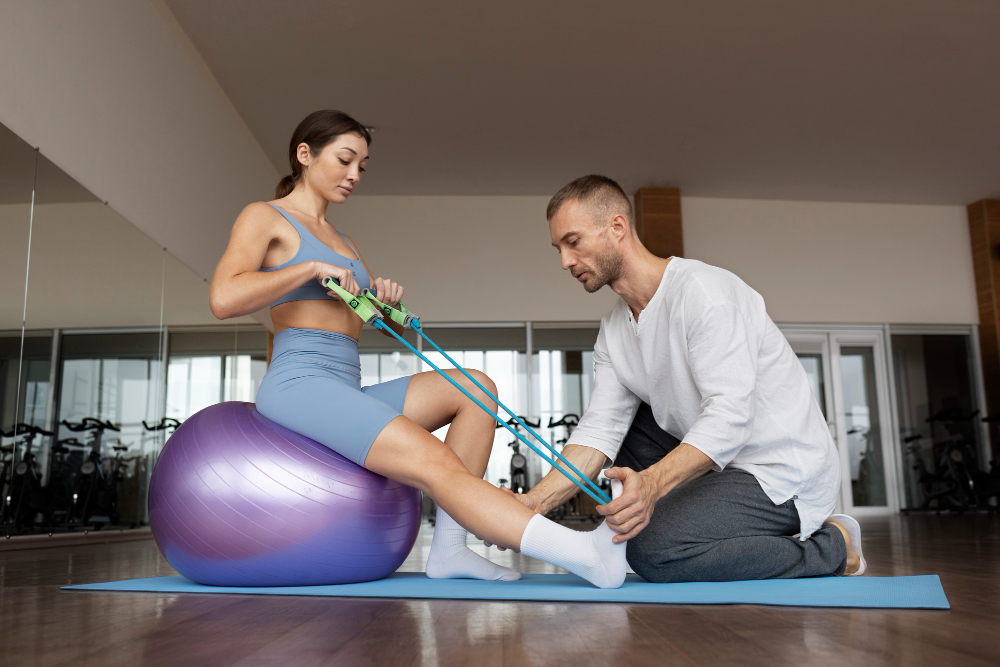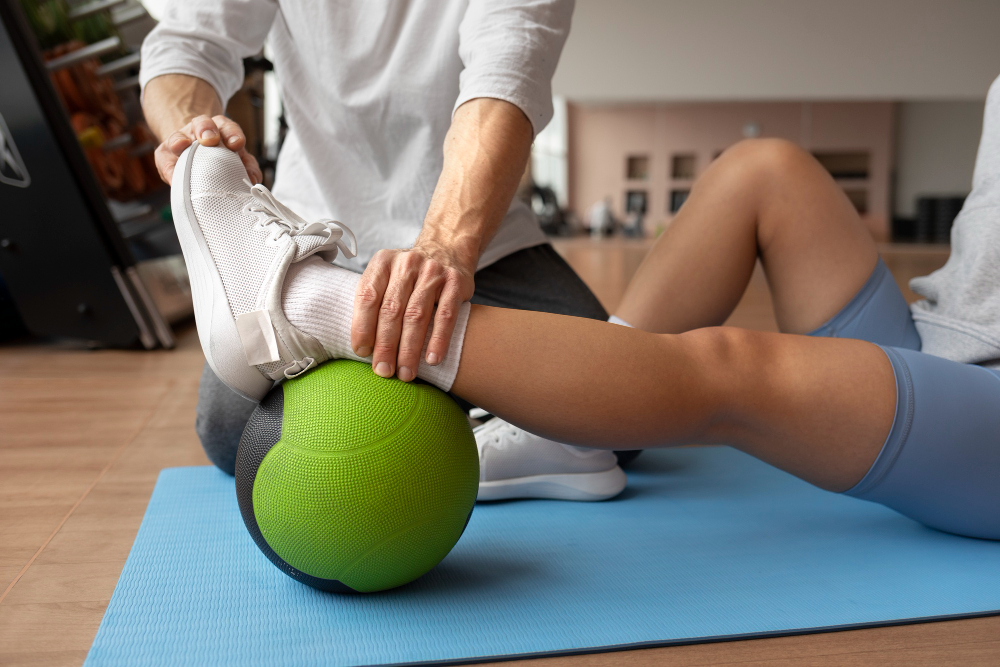Movement Is Medicine
A Parkinson’s diagnosis can feel overwhelming — both for those living with it and their loved ones. As this progressive neurological condition affects movement, balance, and independence, many wonder how to regain control of daily life.
While there’s no cure yet, physiotherapy offers one of the most powerful ways to manage symptoms and maintain quality of life. With the right support, people with Parkinson’s can move better, stay safer, and continue doing what they love — with confidence.
How Parkinson’s Disease Affects Movement
Parkinson’s impacts the nervous system, gradually reducing the brain’s ability to send smooth movement signals to the body. This can lead to:
- Slowness of movement (bradykinesia)
- Muscle stiffness or rigidity
- Tremors
- Shuffling walk and reduced arm swing
- Poor balance and frequent falls
- Freezing episodes (sudden “stuck” feeling when trying to move)
These symptoms affect not only walking, but everyday tasks like getting dressed, turning in bed, or even standing up — leading many to lose confidence, withdraw from activity, and become more dependent.
How Physiotherapy Helps with Parkinson’s
At Active Rehab, we design custom treatment plans to help clients manage symptoms, improve movement, and retain their independence.
- Gait Training
- Strategies to increase stride length and reduce shuffling.
- Rhythmic auditory cues (e.g., music or metronome) to reduce freezing.
- Treadmill walking with support if needed.
- Balance & Fall Prevention
- Targeted drills for stability while standing and walking.
- Weight shifting, reaching, and stepping exercises.
- Learning safe fall recovery techniques
- Flexibility & Mobility Work
- Stretching routines to reduce stiffness, especially in the neck, trunk, and hips.
- Rotational exercises to maintain full body mobility
- Strengthening Muscles
- Focused lower body and core training to improve posture, walking, and transfers.
- Posture Re-Education
- Visual feedback (like mirrors or video) to help correct stooped posture.
- Cueing and body awareness techniques
Functional Mobility Training
Practicing everyday movements like getting out of bed or rising from a chair
Techniques for turning safely in tight spaces.
Task-specific training to enhance independence at home.
When Should You Start Physiotherapy?
The sooner, the better.
Physiotherapy is helpful from the moment of diagnosis — not just in advanced stages. Early treatment can:
Delay or minimize mobility problems.
Preserve muscle strength and endurance.
Prevent falls and injuries
Support mental well-being through confidence and empowerment
Even in later stages, physiotherapy supports caregiver training, safety strategies, and assistive devices to maintain quality of life.
Try These Exercises (With Supervision)
- Always work with a trained physiotherapist to ensure safety.
- Marching in place with high knees
- Side-stepping along a wall or hallway
- Standing weight shifts from left to right.
- Walking to rhythmic music or a metronome beat
These simple exercises can help retrain the brain and body to move with greater ease.
❓ Frequently Asked Questions (FAQ)
- Can physiotherapy really help with Parkinson’s disease?
Yes. Physiotherapy cannot cure Parkinson’s, but it plays a crucial role in managing symptoms, improving mobility, reducing fall risk, and helping individuals stay independent for longer. Regular treatment improves posture, gait, strength, and confidence.
- When should someone with Parkinson’s start physiotherapy?
It’s best to start as early as possible, ideally right after diagnosis. Early intervention helps delay movement limitations, maintain fitness, and prevent complications. However, physiotherapy is also beneficial in later stages to improve safety and quality of life.
- What types of exercises are used for Parkinson’s patients?
Common physiotherapy exercises include:
- High-knee marching
- Side-stepping
- Weight-shifting drills
- Walking to rhythmic cues
These are personalized to improve balance, strength, and coordination — and should always be guided by a licensed therapist.
⸻
- Can physiotherapy help with freezing and shuffling gait?
Yes. Physiotherapists use external cueing techniques (like music, metronomes, and visual lines) to overcome freezing and help patients take longer, more confident steps. Gait training is a core part of Parkinson’s therapy.
- Is physiotherapy covered by insurance in Ontario?
In many cases, extended health insurance covers physiotherapy. At Active Rehab, we assist patients in checking their eligibility and offer direct billing for most insurance providers.
The Role of Caregivers and Family
Parkinson’s is not a journey walked alone. Involving caregivers and family makes a huge difference.
At Active Rehab, we teach families how to:
Assist with exercises and movement safely.
Use mobility aids correctly.
Support fall prevention and build confidence at home.
Family members often become partners in the care journey — and we empower them with tools and guidance every step of the way.
Take the First Step Toward Better Movement
If you or a loved one is living with Parkinson’s, know that you don’t have to face it alone. Physiotherapy can restore not just movement, but hope, confidence, and daily freedom.
Book an assessment with a licensed physiotherapist today at Active Rehab, Mississauga. Let us help you take that next strong, supported step forward.
Call: 905-273-0088 | WhatsApp: 289-933-2081
1224 Dundas St W, Mississauga



